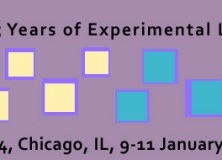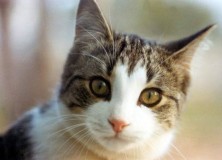[Official Release]
MIT has long been a premier center of technological innovation. On July 1, a new locus for literary innovation will be added to the mix: The campus will begin hosting the headquarters of the Electronic Literature Organization (https://eliterature.org).
The Electronic Literature Organization, or ELO, is a 501(c)(3) non-profit organization composed of an international community that includes writers, artists, teachers, scholars, and developers. The Organization’s focus is new literary forms that are made to be read on digital systems, including smartphones, Web browsers, and networked computers.
ELO is coming to MIT with the support of MIT’s world-renowned Comparative Media Studies (CMS) program. CMS, which has an undergraduate major, a graduate program, and several large-scale research projects, is committed to the art of thinking across media forms, theoretical domains, cultural contexts, and historical periods. The program considers media change and the rise of new forms of writing in different eras, including our current one. ELO’s supporting and collaborating organizations at MIT include the School of Humanities, Arts and Social Sciences; the Program in Writing and Humanistic Studies; the Council for the Arts at MIT; Hyperstudio; the Literature Section; and the Singapore/MIT GAMBIT Game Lab.
There is already a great deal of work in electronic literature ongoing at MIT, including that being done by ELO President Nick Montfort and ELO Director Fox Harrell, who are both on the MIT faculty. The Boston area is home to several other ELO directors and to a great deal of digital art activity, thanks to organizations such as the Boston Cyberarts Festival, Turbulence.org, the AXIOM Gallery, the Upgrade! Boston series, and the People’s Republic of Interactive Fiction.
“ELO and MIT have already been successful in advancing the state of the art in electronic literature,” said Montfort. “Now, by working together, we have a chance to sustain ELO’s core operations and projects and to further MIT’s existing commitment to electronic literature. ELO’s coming to MIT will be an chance to find new opportunities for collaboration, here in Cambridge and beyond.”
ELO was founded in 1999 by novelist Robert Coover, electronic author Scott Rettberg, and Internet business leader Jeff Ballowe. The Organization was operated from an office in Chicago until it moved to UCLA in 2001. In 2006, ELO’s headquarters came to the University of Maryland’s Maryland Institute of Technology in the Humanities (MITH). “ELO’s relationships with its academic hosts have been extremely productive for the organization,” said Montfort. “We’re very grateful for the ways that UCLA and MITH have helped us to accomplish our mission, sustain and add projects, and develop as an organization. With work from ELO’s directors, members, and collaborators, we’re now going to try to establish a long-term home for ELO at MIT that will allow the organization and the campus to continue to benefit from their collaboration for many years.”
ELO’s main projects are currently a biannual conference, the Electronic Literature Directory, the Electronic Literature Collection (the second volume of which was released this past Spring: http://collection.eliterature.org) and the eliterature.org site.



